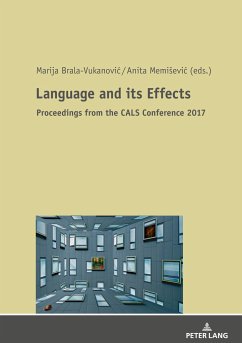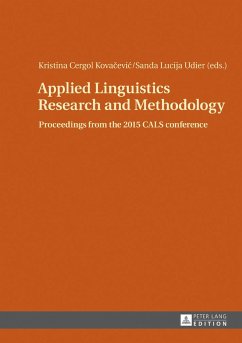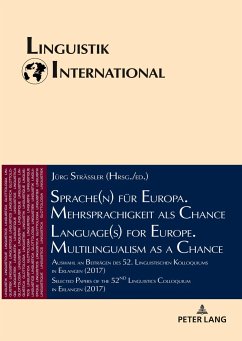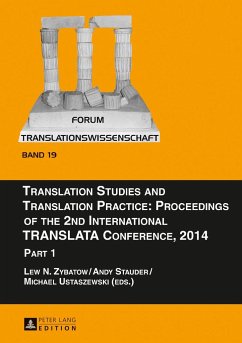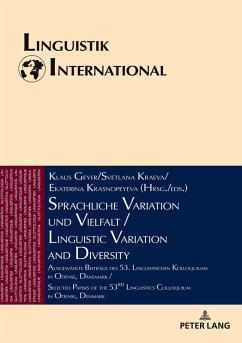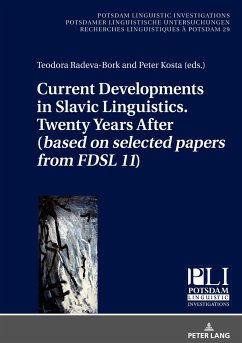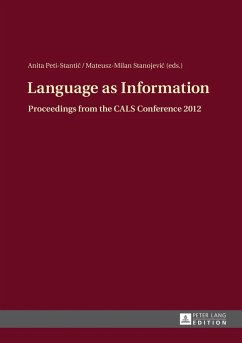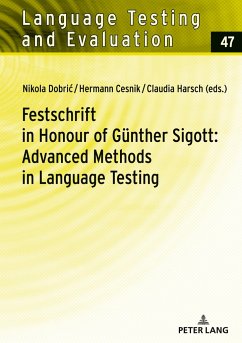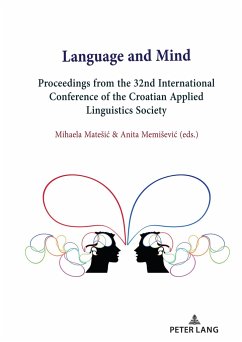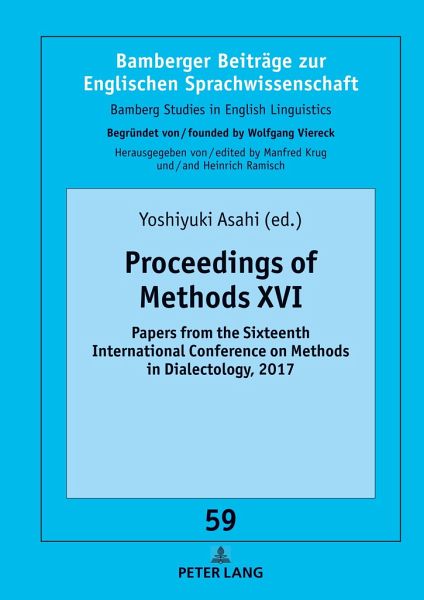
Proceedings of Methods XVI
Papers from the sixteenth international conference on Methods in Dialectology, 2017
Herausgegeben: Asahi, Yoshiyuki
Versandkostenfrei!
Versandfertig in 6-10 Tagen
71,30 €
inkl. MwSt.

PAYBACK Punkte
0 °P sammeln!
Methods in Dialectology is a venerable institution, having started in 1972 in London, Western Ontario, Canada. This book is a collection of papers presented at Methods XVI in Tachikawa, Japan, in 2017. It was the first time Methods took place in Asia. In this volume, the emphasis is on diverse methods and diverse research questions. Many of the papers focus on language innovation, language change, corpus studies and linguistic atlas from different perspectives. At the same time, methodological innovation is very much in focus. Its emphasis meant that several papers showcased cutting-edge quant...
Methods in Dialectology is a venerable institution, having started in 1972 in London, Western Ontario, Canada. This book is a collection of papers presented at Methods XVI in Tachikawa, Japan, in 2017. It was the first time Methods took place in Asia. In this volume, the emphasis is on diverse methods and diverse research questions. Many of the papers focus on language innovation, language change, corpus studies and linguistic atlas from different perspectives. At the same time, methodological innovation is very much in focus. Its emphasis meant that several papers showcased cutting-edge quantitative techniques that allow dialectologists to address questions that had been thought impossible to answer only a few years ago.






